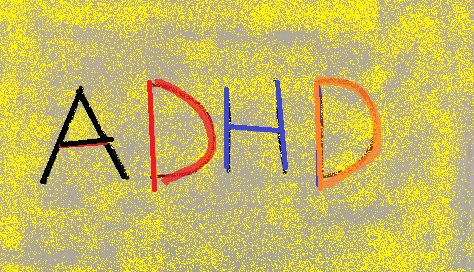This is @edpsychprof's newsletter for those interested in transforming schools to become places where children (and adults) can thrive.
My neighbor stopped me yesterday to tell me that she read the ADHD chapter in my new book, Millennials' Guide to K-12 Education: What No One Ever Told You About How to Help Your Child THRIVE in School. I gave her a signed copy because she is the BEST neighbor ever and saw me pacing the sidewalks many times this past year when I took a writing break or to hash out my thoughts.
“Was it the hardest chapter to write?” she asked.
“Yep, I cried afterwards,” I told her. Just the weight of revisiting this issue and re-experiencing the difficulties my oldest son has faced from birth bruised my heart all over again.
I think it’s the longest chapter in the book. Having a son with ADHD made the chapter hit closest to home. One thing that often bothers me with certain types of discourse around this subject is that some say ADHD is just a type of neurodiversity. That kind of talk makes my son (and me) angry. After witnessing all the struggles he’s faced, and how medication can make a real difference, we have both come to accept that ADHD is a significant disability, albeit one that can be helped with good strategies and sometimes, medication.
Here’s a snippet from the book on this issue:
3. ADHD isn’t a hidden gift or “blessing in disguise.” Would you tell a blind child that their blindness is a gift because their hearing is better than those who are not blind? Yet some folks persist in telling us that ADHD just means one’s brain works differently, but that it’s not a disorder. Here’s the thing—I think they mean well. If you think you have a disorder, you might be tempted to cut yourself slack, not try as hard, or get depressed. But I disagree with the idea that ADHD is a “gift.” It’s certainly not a curse either, but it is a disability, and I believe it’s helpful for parents to accept this so that they can get their child the support they need to be successful in school and beyond. Yes, there are people with ADHD who are fantastically successful. But their success is not because of their disability; rather, it’s due to the support, help, and privilege they have finding ways to succeed despite the constraints imposed by their ADHD. Recognizing that ADHD is a disability doesn’t mean that ADHD should be stigmatized—a strengths-based approach is recommended for helping all kids to thrive despite whatever challenges they have. But if you don’t acknowledge the challenges inherent in having ADHD, then your child may not get needed support or help, further putting them at risk for the issues in item #4 below.
In the chapter, I discuss the “intersection” metaphor for ADHD that has helped me in my own understanding of why ADHD is often accompanied by impulsive behaviors and why sometimes, kids with ADHD can be hyper-focused on something. They aren’t always inattentive.
Do any of you have kids with ADHD? If so, do you also find the “blessing in disguise” discourse problematic, or has that been helpful for you and your family?
On another note, now that I’ve had some time to catch my breath after the book publication, I though it would be fun to do a book giveaway for the paperback version. To be entered, all you need to do are two things: follow me on Twitter or Instagram, and then share the book giveaway post on your own social media feed.
Thank you to all those who purchased an eBook during book launch. Don’t forget to visit my website to sign up for bonus content and active links to all the book references and resources.
PS. If you don’t want to receive these emails anymore, it’s totally cool to unsubscribe. No need to clutter your inbox if the content isn’t relevant to you. My plan is to share more of the book chapters in the coming months while continuing to address other issues related to school transformation. My ultimate goal is to form a community around these ideas and press for grassroots changes in how schools operate.
For those sticking with me, thank you for accompanying me on this journey!
Big big hugs. -Michele
Get this newsletter delivered fresh (and free) to your inbox by subscribing below:
Let's stay connected. Together we can help make schools places where kids can thrive



